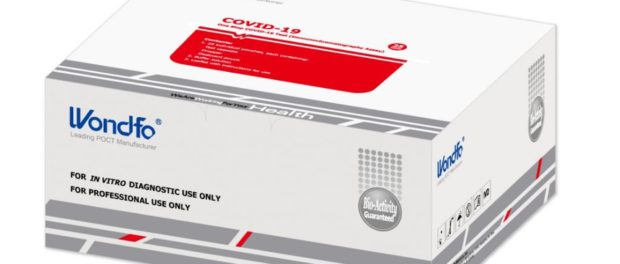U.K. becomes another country to stock up on faulty Covid-19 Rapid Antibody tests
Get our headlines on WHATSAPP: 1) Save +1 (869) 665-9125 to your contact list. 2) Send a WhatsApp message to that number so we can add you 3) Send your news, photos/videos to times.caribbean@gmail.com

The U.K. became the latest country to stock up on faulty Covid-19 tests after Oxford University researchers found that many of the kits can’t accurately show whether someone was exposed to the new coronavirus.
Multiple tests provided for evaluation “have not performed well,” said John Bell, a professor of medicine at Oxford and adviser to the government on life sciences. The home-testing kits are designed to look in people’s blood for antibodies produced by the immune system to fight the virus.
Many countries are hoping these kinds of tests can help grasp the true scope of the pandemic and reveal who has built up immunity to Covid-19 and can return to a more normal life — but they must be accurate. Germany estimates such tools may be three months away, Bell wrote. It could be at least a month before the U.K. can find a reliable version, he said.
“Sadly, the tests we have looked at to date have not performed well,” Bell said in a blog post. “This is not a good result for test suppliers or for us.”
British officials said on March 25 that they’d ordered more than 4 million of these tests, which can be as simple as finger-prick devices. They said the kits could have been made available on Amazon.com Inc. and at pharmacies.
Recover Costs
U.K. officials were hoping to turbo-charge the country’s Covid-19 testing, which lags other countries in Europe. Already, Spain, the Czech Republic and Slovakia have reported similar rapid-test failures. The U.K. will cancel orders and recover the costs where possible, said James Slack, a spokesman with the prime minister’s office.
While the underlying technology is sound — antibody tests have been used for years with diseases including HIV and dengue fever — so far the ones developed for Covid-19 fail to pass muster. The tests either show too many negatives, indicating people aren’t immune when in fact they were exposed to the virus, or too many positives, which suggests someone is protected when they aren’t.
“We clearly want to avoid telling people they are immune when they are not, and we want all people who are immune to know accurately so they can get back to work,” Bell said.
Leave a comment
You must be logged in to post a comment.